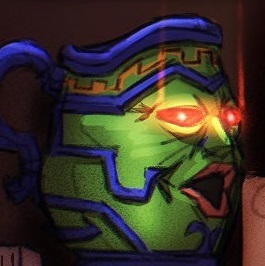Hello comrades, it's time for our first discussion thread for The Will to Change! Please share your thoughts below on the first two sections of the book. There's quite a lot to talk about between hooks' discussion of masculinity discourse within feminist circles, the ways both men and women uphold patriarchy, and the near universal experience of men being forced to suppress their rich emotional worlds from a young age. I'll be posting my thoughts in a little bit after I'm done with work.
If you haven't read the book yet but would like to, its available free on the Internet Archive in text form, as well as an audiobook on Youtube with content warnings at the start of each chapter, courtesy of the Anarchist Audio Library, and as an audiobook on our very own TankieTube! (note: the YT version is missing the Preface but the Tankietube version has it) Let me know if you'd like to be added to the ping list!
Our next discussion will be on Chapters 2 (Understanding Patriarchy) and 3 (Being a Boy), beginning on 12/4.
Thanks to everyone who is or will be participating, I'm really looking forward to hearing everyone's thoughts! ![]()

I found the preface and first chapter challenging in a productive way. As somebody who's never felt or desired romantic connections to men i found it a good reminder to be confronted with how openly she talks about needing emotionally available men in her life. It's something that very often falls by the wayside with how heteropessimism is spreading among younger women. I've had a very rocky relationship with masculinity throughout my life, from me as an egg never being able to meet the demands of patriarchy placed upon me due to my AGAB to the liberation of being able to just discard these demands as soon as i realized i never want to be seen as a man again. And when you combine that with the fall i took when i gave up male privilege (that i never really wanted and could never fully utilize because accquiring it harmed me even more than it harms men) and faced misogyny firsthand for the first time, it just becomes very easy to grow resentful of men and to slip into a quasi-essentialist mindset.
It's good to confront that, and it opens up a lot of interesting personal questions for me as well, but i wonder if future chapters (i just finished the second one) will answer my question how to help men who just can not heal in the same way i did, who do not have the quick and radical way out of rejecting all forms of masculinity available to them. I know firsthand how brutally the patriarchy trains boys and men and everybody it sees as these to police masculinity, it must be tough to find a road towards a healthy masculine role that allows for the healing and the emotional availability that the men of this world need now more than ever.
Admittedly, this is a lot of why I avoid women that aren't either related to me through marriage, or in a relationship with nowadays. Yeah, I've spent a decade trying to sand and polish and lacquer over all the rough parts of me that can and have given people mondo splinters before, but... If there's one thing that perennially gets me to avoid spaces, avoid thinking about fellowship, hell, even avoid meatspace friendship, it's because in those moments of experiencing what you've referred to as heteropessimism from women, it reminds me that I can do all the work on myself I want-- but because of what I was born with, I'm just immediately categorized a threat. Because harmful men oftentimes don't listen when those of us who have either started on, or been deeply enmeshed in that work a minute.
I don't like being made to feel like I'm still a walking weapon when I'm the one who installed my safeties, when I'm the one who field-cleared my barrel, when I'm the one who removed my firing pin-- and it feels like nothing will change as long as there's dudes cutting us off for trying to tend to their toxicity. I'd be lying if I'd said I hadn't considered transitioning before just to try and cut down on the reasons people cross the street in front of me when they see me coming.
Not trans, but I relate a lot here. I don't really want anything to do with masculinity. There's no positive side of it for me. And I don't like that my physical appearance overdetermines what people think they know about me and my gender.
I'm also hoping she goes further into this. I don't actually have a clue what "masculinity" means to me and I can't name a single trait of being "masculine" that's exclusive to men, I just know I hate the macho tough guy bullshit that patriarchy pushes on everyone
yeah people point to fred rogers but if positive masculinity is just "being a decent person while masc-coded" then i don't understand what's the point of the masculinity part
I think those are important steps or images for some people. Without erasing the vital importance of women's culture throughout history, I reach towards universal values. I don't see Mr. Rodgers as a good man so much as a good person who is a man.
The more you unpack patriarchal or machista values, the less relevant gender becomes.